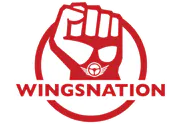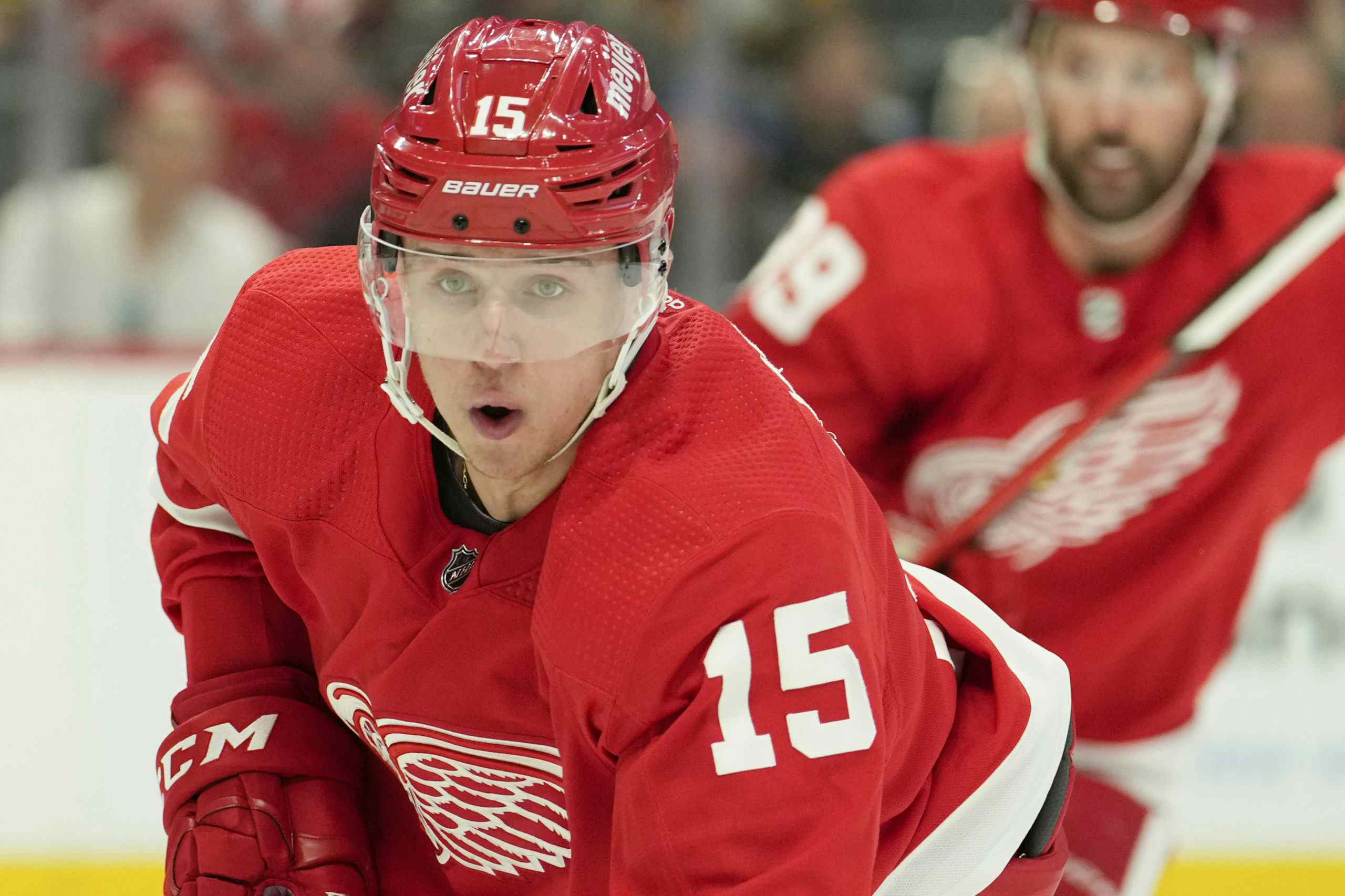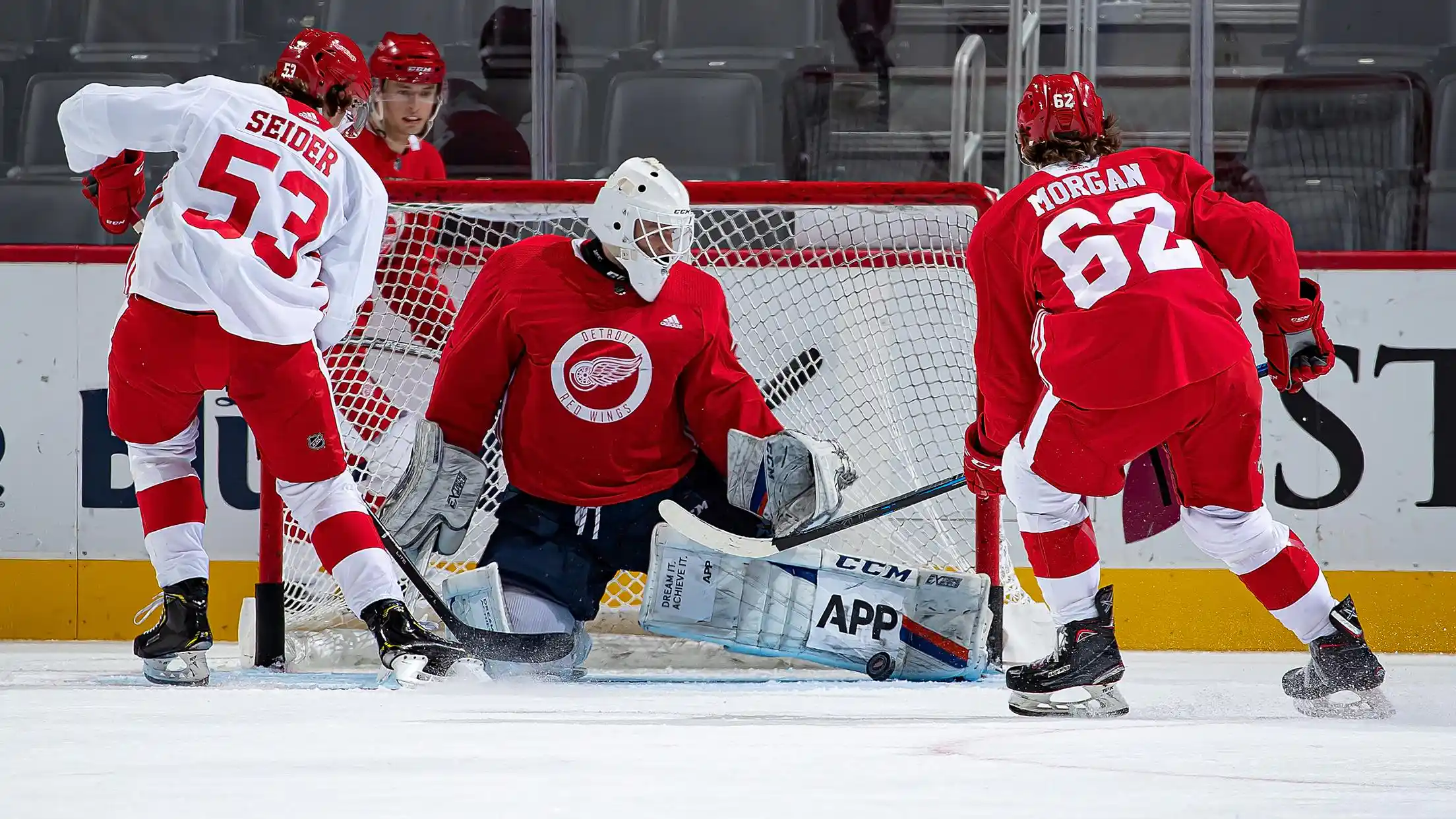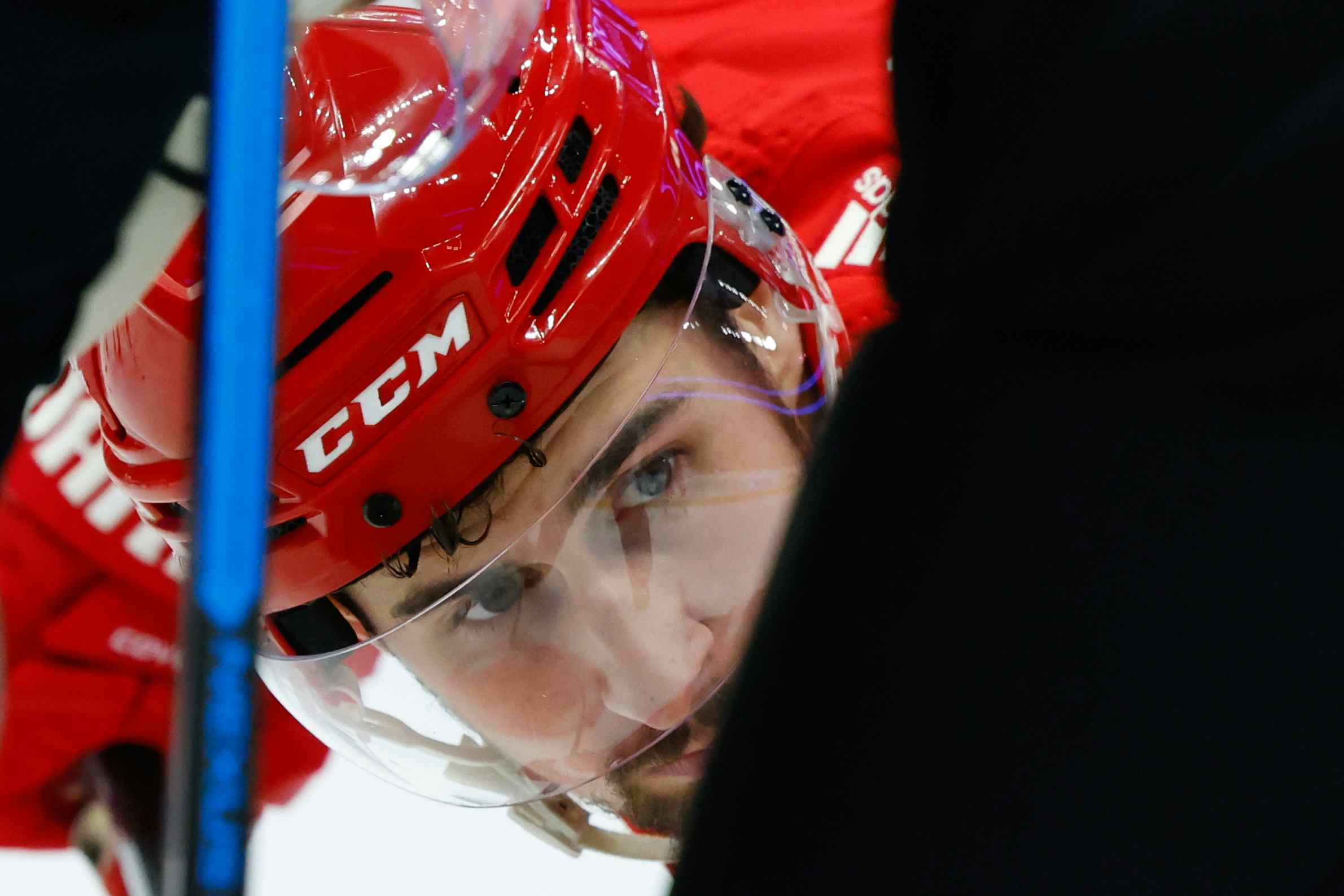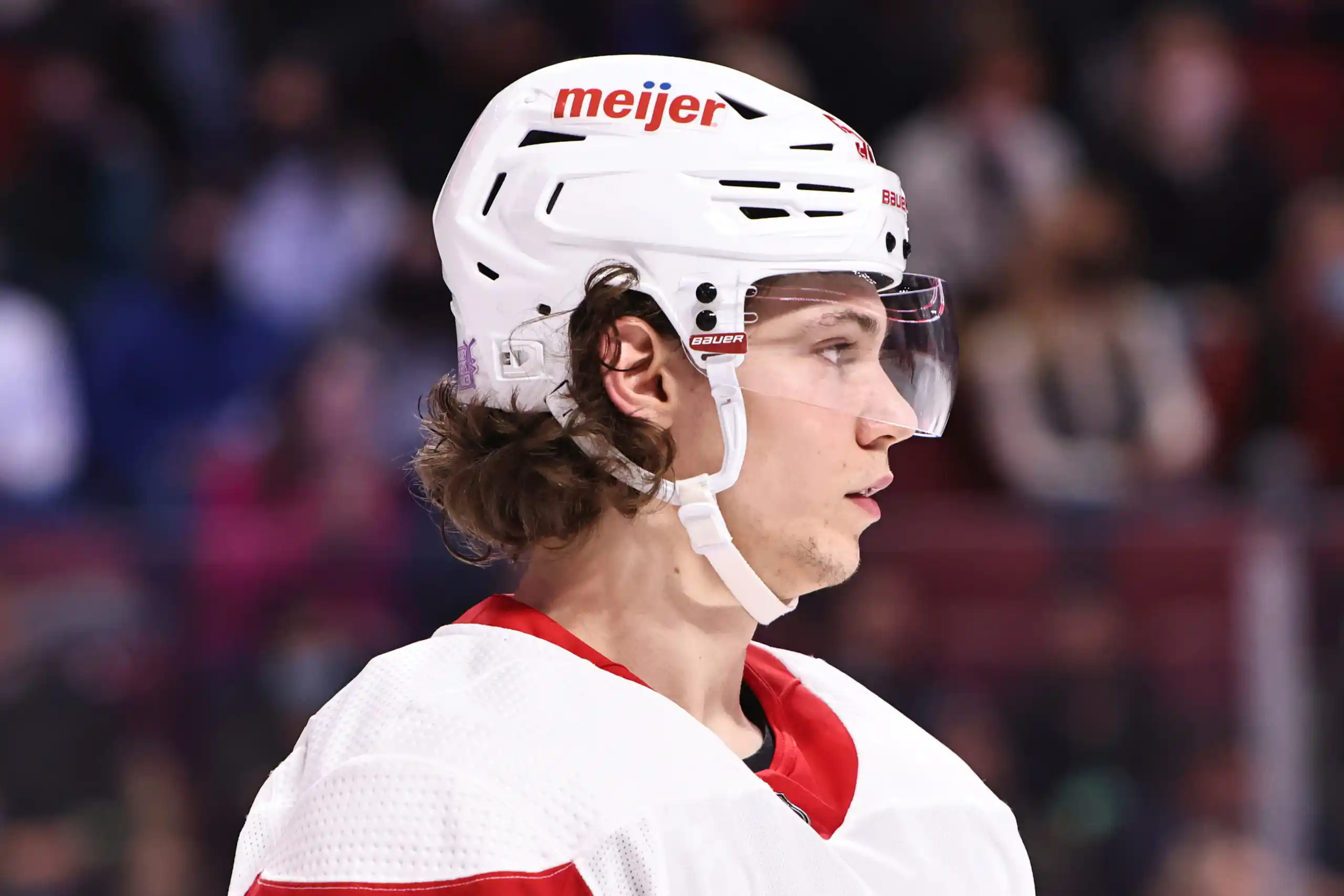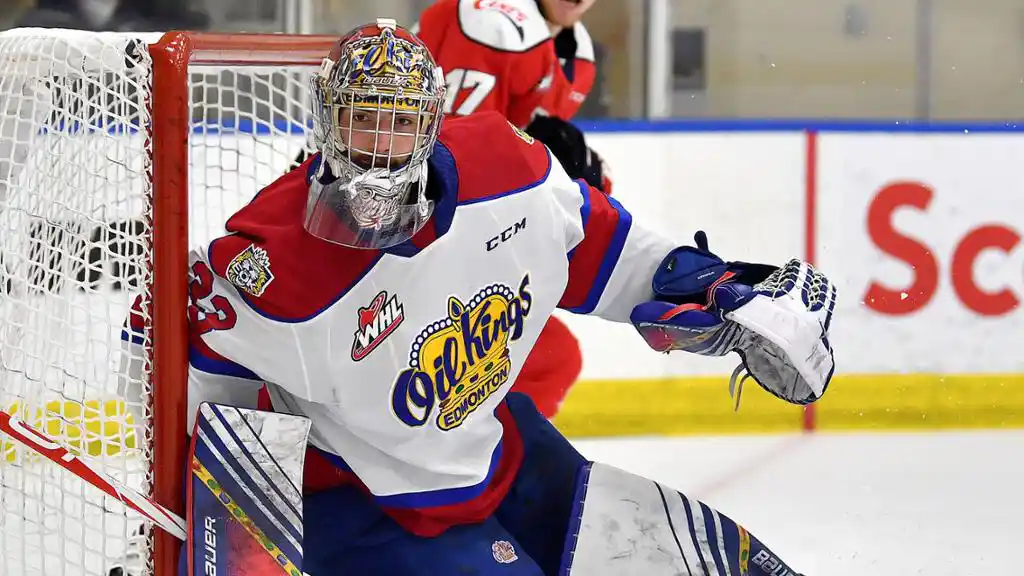Breaking Down Summer 2016: Pacific Division
By Cam Lewis
7 years agoThis article is part of a four-part series that lists all of the transactions made by each NHL team and discusses what each team’s offseason means in the context of their division. Information and data was taken from: NHL Numbers, Hockey Reference, General Fanager, Hockey Analysis, Corsica, TSN, and Rotowire. Also, a special thanks to Sean Tierney who provided data visualization for the series.
Everything went according to plan in the Pacific Division last season.
The Californian teams dominated, as the Kings and Sharks found the stride that they had misplaced in 2014-15 and the Ducks continued to roll despite a terrible start. The Flames fell back down to earth and the Canucks showed signs of aging, joining the perpetually rebuilding Oilers and the tank-happy Coyotes at the bottom of the standings.
This year is bound to be a little more complicated. The Sharks and Kings look to be as strong as they were last season, but the Ducks have struggled mightily with the threat of the expansion draft, and the Coyotes, Oilers and Flames each made strides to improve themselves around their core of young talent.
Anaheim Ducks
- Fired head coach Bruce Boudreau. Named Randy Carlyle head coach.
- Traded Frederik Andersen to the Toronto Maple Leafs for a 2016 first round pick and a 2017 second round pick.
- Traded a conditional draft pick to the Toronto Maple Leafs for Jonathan Bernier.
- Signed Nate Guenin to a one-year, $600k contract.
- Signed Mason Raymond to a one-year, $675k contract.
- Signed Jeff Schultz to a one-year, $575k contract.
- Signed Jared Boll to a one-year, $900k contract.
- Signed Antoine Vermette to a two-year contract with a $1.75 million cap hit.
- Re-signed Sami Vatanen to a four-year contract with a $4.875 million cap hit.
- Minor re-signings: Dustin Tokarski, Corey Tropp, Korbinian Holzer, Stefan Noesen, Joseph Cramarossa, Andrew O’Brien, Michael Sgarbossa.
- Entry-level contracts: Deven Sideroff, Jacob Larsson, Keaton Thompson, Kevin Roy, Andy Welinski, Max Jones.
- IN: Antoine Vermette, Nate Guenin, Mason Raymond, Jeff Schultz, Jared Boll, Jonathan Bernier, Deven Sideroff, Jacob Larsson, Keaton Thompson, Kevin Roy, Andy Welinski, Max Jones.
- OUT: David Perron, Anton Khudobin, Chris Stewart, Jamie McGinn, Harry Zolnierczyk, Chris Mueller, Shawn Horcoff, Brandon Pirri, Mike Santorelli, Frederik Andersen, Kevin Gagne, Charlie Sarault, Matt Bailey, Martin Gernat, Brian McGrattan, Joe Piskula.
- UNSIGNED: Hampus Lindholm, Rickard Rakell.
Since getting dropped in the first round of the playoffs by the seventh seeded Nashville Predators, things haven’t started looking up for the Anaheim Ducks. To kick off their summer, they fired head coach Bruce Boudreau and replaced him by giving Randy Carlyle the keys to the bench for a second go around. You’ll probably remember that Carlyle was around when the Ducks won their one and only Stanley Cup back in 2007, but more recently, he had a pretty ugly tenure with the Toronto Maple Leafs in which he was ostracized for implementing a system that resulted in very poor underlying results (and, well, save for the 2013 miracle, overall results too).
Beyond that, the Ducks allowed all of last year’s mid-season acquisitions (David Perron, Jamie McGinn, and Brandon Pirri) to walk as free agents, and they didn’t make any noteworthy free agent splashes to replace their spots on the roster, unless, of course, you consider plucking Mason Raymond, Antoine Vermette, and Jared Boll from the lost-and-found bin to be something major. They also came into the offseason with four key RFAs in need of new contracts, which isn’t a very good thing when you’re a team who operates on a fixed internal budget. So far, they’ve signed one (Sami Vatanen), traded another (Freddy Andersen), and have two waiting around without deals (Hampus Lindholm and Rickard Rakell).
This ugly situation can be largely explained by the impending threat of the expansion draft. The Ducks have already shipped Andersen away because either he or John Gibson would have been left unprotected for Las Vegas to grab. In terms of skaters, assuming they opt to prospect four forwards and four defencemen, the Ducks need to protect Corey Perry, Ryan Getzlaf, Ryan Kesler, and Kevin Bieksa because of their no movement clauses, leaving them with just four spots left for Jakob Silfverberg, Andrew Cogliano, Rickard Rakell, Hampus Lindholm, Cam Fowler, Simon Despres, Sami Vatanen, and Josh Manson.
So not only do the Ducks have to deal with the difficulties of a self-imposed internal budget, they also have to shop players around from a position of obvious vulnerability in order to mitigate the risk of losing players for nothing come expansion draft time.
Verdict: It’s pretty clear that the Ducks roster is worse than it was last season. The players in the in category simply don’t match the ones in the out category. And that’s just the beginning. We still aren’t sure who’s going to be on the Ducks at the beginning of the season as two key RFAs are still without contracts, and the team only has four slots available to use at the expansion draft. So while it’s hard to give the Ducks a grade this summer because they aren’t even close to finished yet, it’s even more difficult to envision them swimming out of this muddy situation without any scratches.
Arizona Coyotes
- Fired general manager Don Maloney. Named John Chayka general manager.
- Traded a conditional 2016 fifth round pick to the Dallas Stars for the negotiating rights to Alex Goligoski. Signed Goligoski to a five-year contract with a $5.475 million cap hit.
- Traded Joe Vitale, a 2016 first round pick (No. 20), and a 2016 second round pick (No. 53) to the Detroit Red Wings for Pavel Datsyuk’s contract and a 2016 first round pick (No. 16).
- Traded a 2016 second round pick to the Tampa Bay Lightning for Anthony DeAngelo.
- Traded a 2017 third round pick and a conditional 2018 pick to the Florida Panthers for Lawson Crouse and Dave Bolland.
- Signed Jamie McGinn to a three-year contract with a $3.33 million cap hit.
- Signed Jamie McBain to a one-year, $575k contract.
- Signed Luke Schenn to a two-year contract with a $1.25 million cap hit.
- Signed Radim Vrbata to a one-year, $1 million contract.
- Minor signings: Justin Peters, Garret Ross, Ryan White, Chris Mueller.
- Re-signed Louis Domingue to a two-year contract with a $2.1 million cap hit.
- Re-signed Kevin Connauton to a two-year contract with a $1 million cap hit.
- Re-signed Shane Doan to a one-year, $5 million contract.
- Re-signed Connor Murphy to a six-year contract with a $3.85 million cap hit.
- Re-signed Michael Stone to a one-year, $4 million contract.
- Minor re-signings: Tyler Gaudet, Jarred Tinordi, Stefan Fournier, Craig Cunningham.
- Entry-level contracts: Jakob Chychrun, Adin Hill, Kyle Wood.
- Bought out Antoine Vermette. He’ll carry a $1.25 million cap hit for two more seasons.
- IN: Lawson Crouse, Dave Bolland, Radim Vrbata, Jamie McGinn, Jamie McBain, Justin Peters, Garret Ross, Ryan White, Chris Mueller, Luke Schenn, Pavel Datsyuk’s contract, Anthony DeAngelo, Jakob Chychrun, Adin Hill, Kyle Wood.
- OUT: Antoine Vermette, Christian Thomas, Boyd Gordon, Philip Samuelsson, Joe Vitale, Alex Grant, Steve Downie, Alex Tanguay, Nicklas Grossman, Anders Lindback, Sergei Plotnikov, Dylan Reese, Jiri Sekac, Brendan Shinnimin, Derek Smith, Viktor Tikhonov, Kyle Chipchura, Jordan Szwarz, Niklas Treutle.
- UNSIGNED: Tobias Rieder.
The Arizona Coyotes likely underwent the largest metamorphosis of any team this summer not only because of the turnover they had on their roster, but due to the changes that they made to their front office and organizational philosophy. Somewhat surprisingly, the Coyotes dismissed Don Maloney from his role as general manager, a position he had held since 2007. Replacing him was the 27-year-old John Chayka of Stathletes, making the Coyotes one of the leaders of the hockey analytics renaissance.
Chayka came into a situation this summer with a lot of potential to make a dramatic influence on the direction of the team, as the Coyotes had only eight players from 2015-16 active roster committed to contracts. He immediately upgraded the team’s defence by giving Dallas a fifth round pick for Alex Goligoski’s negotiating rights and signing him to a five-year, $5.475 million contract, which is certainly palatable for a 30-year-old defenceman who can play in a variety of different roles and has shown to be a positive driver of possession in the past.
At the draft, Chayka used some of the team’s cap flexibility to his advantage by acquiring Pavel Datsyuk’s $7.5 million contract from the Red Wings in a deal that allowed them to move up and grab Jakob Chychrun, a top prospect who had fallen due to injury concerns. Later in the summer, Chayka also took Dave Bolland’s hideous contract off of the Florida Panthers’ hands while also netting Lawson Crouse as a reward for doing so.
The Coyotes also added some scoring depth in Jamie McGinn and Radim Vrbata and defensive depth in Luke Schenn via free agency, cleared space for up-and-coming forwards by buying out Antoine Vermette’s contract, and re-signed the majority of the team’s worthwhile free agents, including captain Shane Doan. The only one who’s left is RFA Tobias Rider, who’s currently weighing options overseas. That said, due to the abundance of talent the Coyotes have upfront, if they do end up losing Rieder, it certainly won’t be the end of the world.
Verdict: Chayka’s moves in his first summer on the job appear to be a net positive. He improved the team in the short-term, didn’t hand out any albatross contracts, and also didn’t load up the depth chart with random, terrible veterans that would block key prospects from wading their way into the deep end. That said, the real key to this summer wasn’t necessarily the moves Chayka made, instead, it was his hiring in general and the shift in philosophy that it represents for the organization. It’s going to take a very long time to truly assess whether this shift was the right choice to make, but for a team without much cash, putting faith into a system that can efficiently find holes in the market seems like a worthwhile endeavour.
Calgary Flames
- Fired head coach Bob Hartley. Hired head coach Glen Gulutzan.
- Traded a 2016 second round pick and a 2018 third round pick to the St. Louis Blues for Brian Elliott.
- Traded Patrick Sieloff to the Ottawa Senators for Alex Chiasson. Signed Chiasson to a one-year, $800k contract.
- Signed Troy Brouwer to a four-year contract with a $4.5 million cap hit.
- Signed Chad Johnson to a one-year, $1.7 million contract.
- Re-signed Sean Monahan to a seven-year contract with a $6.375 million cap hit.
- Minor signings: Linden Vey, Daniel Pribyl, David Rittich.
- Minor re-signings: Freddie Hamilton, Tyler Wotherspoon.
- Entry-level contracts: Matthew Tkachuk.
- Bought out Mason Raymond. He’ll carry a $1.050 million cap hit for two more seasons.
- IN: Matthew Tkachuk, Brian Elliott, Alex Chiasson, Chad Johnson, Troy Brouwer, Linden Vey.
- OUT: Mason Raymond, Turner Elson, Joe Colborne, Kenny Agostino, Derek Grant, Josh Jooris, Patrick Seiloff, Joni Ortio, Karri Ramo, Niklas Backstrom, Bill Arnold, Kevin Poulin, Drew Shore, Bryce Van Barbant.
- UNSIGNED: Johnny Gaudreau.
Sticking with our theme of people getting fired, the Calgary Flames let go of Bob Hartley just one year after he was given the Jack Adams Award for his role in sitting around and watching the team inexplicably luck their way into the playoffs. They’ll be replacing him with Glen Gulutzan, who formerly coached in Dallas and has been praised for his skills in player development. This seems like a logical choice, seeing as the Flames are a team loaded with young talent and potential, highlighted by the newly drafted Matthew Tkachuk, who should be a perfect complement alongside Sam Bennett, Sean Monahan, and Johnny Gaudreau.
Speaking of Gaudreau, he still doesn’t have a contract.
There isn’t much information on that situation save for quips from both sides saying they’re comfortable a deal will get done, so all we can really do is sit back, speculate, and come up with terrible conspiracy theories as to why it hasn’t happened. And since I’m really not interested in doing that, I’ll move on and talk about the things the Flames have done this summer, like making major improvements to their goaltending, inking Sean Monahan to a long-term deal, and being the team who got tricked into signing Troy Brouwer to a big contract.
They acquired Brian Elliott from the St. Louis Blues at the draft for two draft picks, which is excellent value for a guy who had the league’s best save percentage last season (albeit in just 41 games on a good team). They also signed Chad Johnson, who had a solid season in Buffalo last year, to a one-year deal to share the net with Elliott, which gives them a much better tandem than the four-headed monster they had last season that combined for a league-worst .898 save percentage.
The Flames also got half of their key RFA situation sorted out when they inked Sean Monahan to a seven-year deal worth $44.625 million. There’s obviously nothing to complain about here as this deal, as you’ll see throughout this series, is pretty much the standard going rate for good young forwards who have proved something at the NHL level signing a post-ELC deal.
Now, on the not-quite-so-nice side of things, the Flames handed out a four-year contract worth $18 million to Troy Brouwer, a nice depth player who can provide some grit, leadership, and will more than likely chip in with somewhere between 15 to 20 goals. All of that sounds nice, but Brouwer is going to be 31 years old at the beginning of the season, so while this deal isn’t horrible at the moment for what he’s likely to provide, it isn’t going to age well.
Verdict: Summer 2016 has treated Calgary well. They fixed their most glaring problem, had an excellent prospect fall into their lap at the draft, and appear to be a better team now than they were in the spring. That said, everything still hinges on Gaudreau and his contract. If for some reason that doesn’t get done, this offseason will go from splendid to disastrous just like that.
Edmonton Oilers
- Traded Taylor Hall to the New Jersey Devils for Adam Larsson.
- Signed Milan Lucic to a seven-year contract with a $6 million cap hit.
- Signed Jonas Gustavsson to a one-year, $800k contract.
- Signed Drake Caggiula to a two-year contract with a $1.35 million cap hit.
- Signed Matthew Benning to a two-year contract with a $1.075 million cap hit.
- Minor signings: Jere Sallinen, Patrick Russell, Nick Ellis, Mark Fraser, Taylor Beck.
- Re-signed Zack Kassian to a one-year, $1.5 million contract.
- Minor re-signings: Tyler Pitlick, Jordan Oesterle, David Musil, Iiro Pakarainen.
- Entry-level contracts: Jesse Puljujarvi, Ethan Bear, Caleb Jones.
- Bought out Lauri Korpikoski. He’ll carry a $500k cap hit in 2016-17 and a $1 million cap hit in 2017-18.
- IN: Jesse Puljujarvi, Adam Larsson, Milan Lucic, Jonas Gustavsson, Drake Caggiula, Jere Sallinen, Patrick Russell, Nick Ellis, Mark Fraser, Taylor Beck.
- OUT: Taylor Hall, Lauri Korpikoski, Adam Clendening, Andrew Miller, Brad Hunt, Adam Cracknell, Luke Gazdic, Eric Gryba, Adam Pardy, Nikita Nikitin, Kale Kessy, Niklas Lundstrom, Rob Klinkhammer, Ryan Hamilton.
I’m sure Oilers fans are tired of hearing about it, but we really can’t just gloss over what happened in Edmonton this summer. After finishing yet another disappointing season in which the team failed to take a step forward, Peter Chiarelli made it clear that changes were on the way. The team was linked (whether there were valid or not is debatable) to just about every defenceman you could imagine — P.K. Subban, Justin Faulk, Jason Demers, Matt Dumba, Tyson Barrie — but the shake up ended up coming at the expense of Taylor Hall being shipped to New Jersey for Adam Larsson.
There’s no way around the fact that Taylor Hall for Adam Larsson straight up is ugly in terms of one-for-one value. The Oilers gave away one of the best forwards in the game, one who can drive a team’s offence and produce for a line damn near singlehandedly, for a defenceman who hasn’t proven much in the league yet. When Larsson is on the ice, his team doesn’t generate much offence and they get eaten alive in terms of possession.
Yes, yes, I understand Edmonton desperately needs defence, and yes, I understand they have a wealth of talent up front. But the value simply isn’t there. Hall is one of the top dozen forwards in the league, as only eight players have produced more even strength, primary points than him over the past three seasons. With Larsson, you have to name a few dozen players before you even begin to consider his name among a list of the league’s top defencemen. Obviously Larsson is still young and can improve, but Edmonton isn’t really in a position in which they want to be adding projects to an already young and enigmatic blue line.
Hall’s spot in the lineup was immediately filled by Milan Lucic, who signed a seven-year, $42 million contract. Lucic isn’t the same dominant power forward he was back in his glory days with Boston, but he’s still a productive player who brings an element to the Oilers that the team very desperately lacks. The contract likely won’t age well, but it wouldn’t be surprising to see Lucic’s production spike if he gets a lot of time with Connor McDavid. They also had Jesse Puljujarvi — the consensus third best prospect heading into the draft — fall into their lap with the fourth overall pick, making the departure of their best winger somewhat more palatable.
Verdict: Though the Oilers are a more well-rounded team heading into next season than they were exiting last season, but it’s hard not to think they could have done better. We all knew that changes were coming and that they badly needed to address the catastrophe they called a blue line, but it’s odd that Taylor Hall was the one they opted to move, considering he’s really the only top prospect from the pre-McDavid era that has lived up to his expectations. There are still a lot of holes on this team — the bottom-six forwards and a true offensive defenceman — but they definitely look like a more well-rounded team than they have in the past, which may or may not be much of an accomplishment.
Los Angeles Kings
- Traded Nick Ebert to the Dallas Stars for Jack Campbell.
- Signed Tom Gilbert to a one-year, $1.4 million contract.
- Signed Jeff Zatkoff to a two-year contract with a $900k cap hit.
- Signed Teddy Purcell to a one-year, $1.6 million contract.
- Minor signings: Zach Trotman, Michael Latta, Patrick Bjorkstrand.
- Re-signed Brayden McNabb to a two-year contract with a $1.7 million cap hit.
- Re-signed Trevor Lewis to a four-year contract with a $2 million cap hit.
- Minor re-signings: Nic Dowd, Derek Forbort, Jack Campbell.
- Entry-level contracts: Jacob Moverare, Paul Ladue, Spencer Watson, Matt Luff.
- IN: Tom Gilbert, Jeff Zatkoff, Teddy Purcell, Jack Campbell, Zach Trotman, Michael Latta, Patrick Bjorkstrand, Jacob Moverare, Paul Ladue, Spencer Watson.
- OUT: Milan Lucic, Jhonas Enroth, Kris Versteeg, Jamie McBain, Luke Schenn, Vincent Lecavalier, Jeff Schultz, Nick Ebert, Brett Butter, Patrik Bartosak, Alex Roach, Oscar Moller.
When you’re a team that’s been walking the tightrope over cap hell for the past few years, loaded with long-term contracts and a veteran core that’s going to be around for the long haul, you can expect to have a pretty boring summer.
The Kings came into the offseason with most of their team already figured out. Since they got Anze Kopitar, who was supposed to hit the open market as a free agent for the first time in his career this summer, signed to an eight-year, $80 million extension back in January, the only real question mark they had was whether they were going to be able to find a way to keep Milan Lucic around.
As we know, they simply couldn’t afford to hand out the seven-year, $38 million deal that Edmonton offered him, considering they already had nine players on their roster signed for four or more years. So rather than adding to their list of massive contracts, the Kings let Lucic walk and focused on making minor improvements to their roster.
They added Teddy Purcell to fill Lucic’s spot in the top six, and Tom Gilbert to provide some much needed depth on the blue line, both on one-year deals, and they took some flyers on Michael Latta, Zach Trotman, and Patrick Bjorkstrand, all of whom are castaways with some potential to plug holes up and down the roster the throughout season.
Verdict: For a team with virtually zero cap flexibility, the Kings did a fair job at improving their roster this summer, grabbing a couple of veterans from the bargain bin on short-term deals. They were a good team last year, and since they’re coming into the 2016-17 with largely the same group as they always do, it’s reasonable to assume that the Kings will be a contender in the Western Conference yet again. That said, things aren’t going to get any easier for them financially, as Tyler Toffoli’s team-friendly bridge deal comes to an end after this season.
San Jose Sharks
- Signed Tomas Hertl to a two-year contract with a $3 million cap hit.
- Signed David Schlemko to a four-year contract with a $2.1 million cap hit.
- Signed Mikkel Boedker to a four-year contract with a $4 million cap hit.
- Minor re-signings: Matt Nieto, Ryan Carpenter, Dan Kelly, Dylan Demelo, Aaron Dell, Michael Haley.
- Entry-level contracts: Marcus Sorensen, Daniel O’Regan.
- IN: David Schlemko, Mikkel Boedker, Marcus Sorensen, Daniel O’Regan.
- OUT: James Reimer, Roman Polak, Jeremy Morin, Karl Stollery, Matt Tennyson, Nick Spaling, Dainius Zubrus, Mark Cundari, Petter Emanuelsson, Jeremy Langlois, Nick Spaling, John McCarthy, Joel Rumpel, Frazer McLaren, Christopher Crane.
The San Jose Sharks came within two games of winning the Stanley Cup this spring, making the 2015-16 season far and away their most successful in franchise history. And though last year’s team was pretty much entirely locked up for another go at it next season, the Sharks still managed to make improvements to their roster at a fairly cheap cost.
They signed Mikkel Boedker to a four-year, $16 million deal giving them another scoring forward to play in their top six, which is necessary, considering old men Joe Thornton and Patrick Marleau might be on their final go around in San Jose. They also added the vastly underrated David Schlemko, who consistently drives possession wherever he plays, to add some much needed depth to their blue line. Based on who came in and went out, you can look at the additions of Boedker and Schlemko as replacements for Nick Spaling and Roman Polak, the ill-advised trade deadline acquisitions they made last year, both of which are pretty significant upgrades.
Verdict: Just like they did last summer when they added Paul Martin and Joel Ward, the Sharks made themselves a better team without having to hand out massive long-term investments by reaching into the second tier of free agents. It’s hard not to think that last year’s Cup run was this group’s final chance at glory, as Joe Thornton, Patrick Marleau, and Brent Burns will all become free agents on July 1, 2017, but the Sharks are doing what they can to capitalize on a window that’s still allowing some light to peek through the crack.
Vancouver Canucks
- Traded Jared McCann and a 2016 second round pick to the Florida Panthers for Erik Gudbranson and a 2016 fifth round pick.
- Signed Loui Eriksson to a six-year contract with a $6 million cap hit.
- Signed Philip Larsen to a one-year, $1.025 million contract.
- Minor signings: Michael Chaput, Jayson Megna, Borna Rendulic, Chad Billins.
- Re-signed Markus Granlund to a two-year contract with a $900k cap hit.
- Re-signed Sven Baertschi to a two-year contract with a $1.85 million cap hit.
- Re-signed Emerson Etem to a one-year, $775k contract.
- Minor re-signings: Alexandre Grenier, Andrey Pedan, Richard Bachman, Michael Zalewski.
- Signed Jakob Markstrom to a three-year contract extension with a $3.667 million cap hit.
- Bought out Chris Higgins. He’ll carry a $833k cap hit for two more seasons.
- Entry-level contracts: Olli Juolevi, Thatcher Demko, Yan Pavel Laplante, Nikita Trymkin.
- IN: Olli Juolevi, Erik Gudbranson, Philip Larsen, Loui Eriksson, Michael Chaput, Jayson Megna, Borna Rendulic, Chad Billins.
- OUT: Dan Hamhuis, Jared McCann, Taylor Fedun, Yannick Weber, Joe Cannata, Alex Friesen, Linden Vey, Chris Higgins, Radim Vrbada, Brandon Prust, Matt Bartkowski, Ronalds Kenins, Blair Jones.
The Vancouver Canucks seemed like the perfect candidate to blow everything up and begin a rebuild last season. They had veteran talent on expiring contracts (Dan Hamhuis and Radim Vrbata), a nice group of prospects and young talent, and most importantly, they weren’t very good.
Heading into the trade deadline, the Canucks were completely out of playoff contention, and it seemed like the organization was going to start looking towards the future. But the deadline came and went, and the Canucks held on to their assets. Kris Russell was able to net the Flames a massive package and Jiri Hudler returned them a couple of second round picks. You’d think they could have gotten something similar for Hamhuis and Vrbata, right?
They didn’t. And now, both of them are gone with absolutely nothing to show for it other than a handful of nice memories. So I guess, based on their philosophy at the deadline, that the Canucks brass again failed to read the writing on the walls and navigated through summer 2016 with the intention of competing for a playoff spot.
They sent a promising prospect in Jared McCann and a second round pick to Florida in exchange for Erik Gudbranson, which is a hefty price to pay for a defenceman who, while he plays tough minutes and brings a physical edge to the game, doesn’t provide anything in terms of offence. Then, in free agency, they inked Loui Eriksson to a six-year, $36 million deal, giving the Sedins that allusive winger they’ve been looking for since, like, Anson Carter played with them and scored 33 goals in 2006.
Verdict: The Canucks are an odd team to analyze right now. You can certainly argue that they got better this summer, as they added to their blue line and they found an excellent winger to play with the Sedins, but it’s hard to believe that it’s going to be enough to elevate the team into the playoffs. I can empathize with what they’re doing, as the Sedins are 35 years old and are only signed for another two seasons, and obviously you want to capitalize on your final shot with them still around, but it seems like they’re really just delaying the inevitable here. This organization needs a full on rebuild, and, unfortunately, it means that barring a miracle, the Sedin window has been closed.
Recent articles from Cam Lewis
